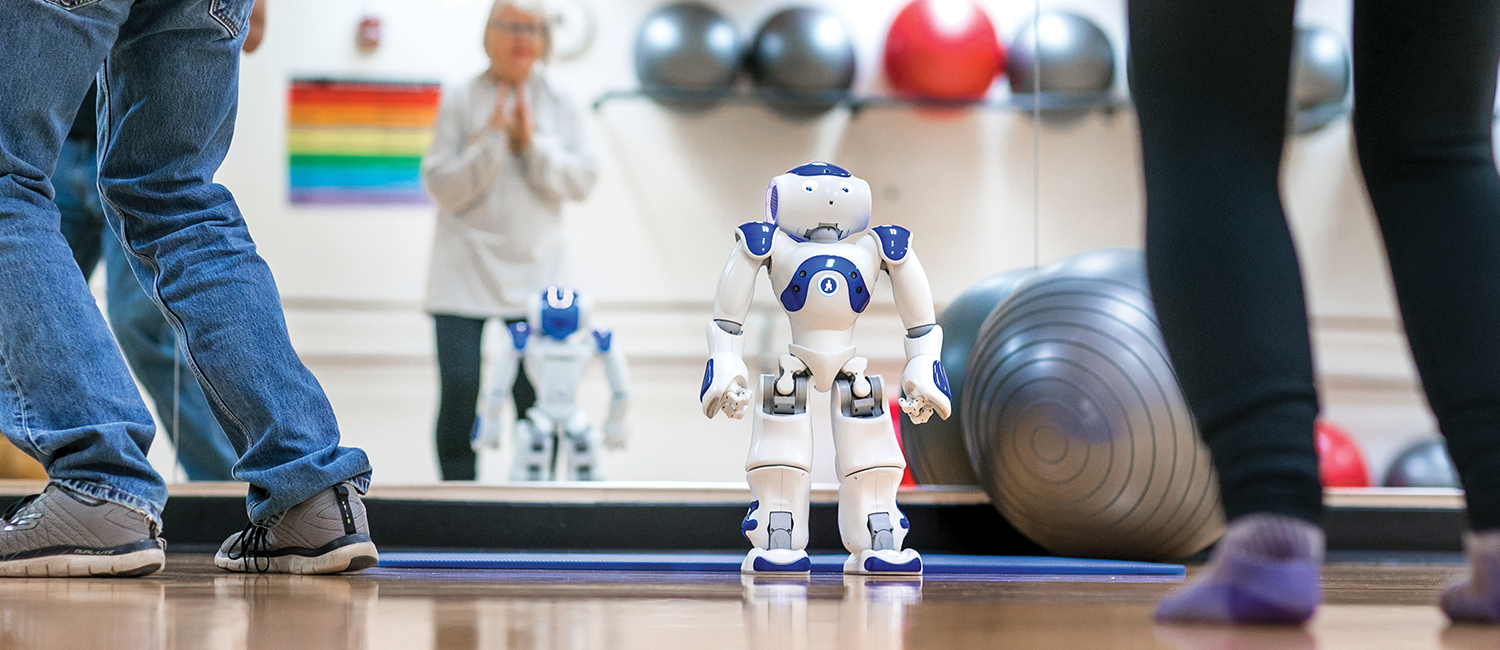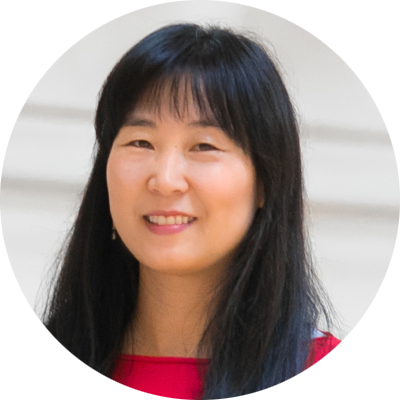
Exercising the possibilities of robotics
While conducting interviews for her research into aging, Hyun Kyoung Oh constantly meets seniors who are interested in learning something new. And although seniors may need more time than younger learners to master new tasks, exercise can slow the cognitive decline associated with age.
However, seniors report a reluctance to work out because they fear injury and lack motivation. Group exercise classes can help, but qualified instructors are often expensive and hard to find. So Oh, an assistant professor of nursing in the College of Nursing, and a team of researchers trained a new type of exercise instructor – a charming robot.
The project included principal investigator Zhi Zheng, an assistant professor of biomedical engineering, and was aided by a UWM Office of Research grant meant to foster collaborative, interdisciplinary research.

Oh, who is certified to teach tai chi, worked with Zheng to teach the gentle sequence of movements to NAO, an interactive robot produced by SoftBank Robotics.
Tai chi is a Chinese martial art consisting of slow, flowing movements, and it’s been widely proven to have a number of health benefits. It also has another facet that appeals to older adults. “Tai chi is slow, so it is safer than other exercise options,” Oh says.
To test the feasibility of robot-led instruction, researchers recruited 20 subjects to take a tai chi class from NAO, then asked them about their experiences. Standing just under 2 feet tall with wide blue eyes and a tiny mouth shaped into a surprised O, the humanoid robot was programed to sound like a friendly, precocious child.
“People said the robot was so cute,” Oh says. In addition to being charmed, participants reported that they easily understood NAO’s commands. The team also studied participants’ facial expressions to judge emotional response. “Emotion speaks to motivation,” Oh says. “Motivation is crucial for self-efficacy. If they feel confident, they will keep going.”
Convinced that robot-led exercise sessions are feasible, the researchers are developing a more robust study pairing exercise classes with mental training tasks meant to improve cognitive function – all moderated by NAO. While Zheng is now at the Rochester Institute of Technology, she remains active in the study.
Oh hopes such programs help a higher number of older adults look forward to a lifetime of learning new activities. She often thinks of one 75-year-old man in particular who told her he wanted to apply to law school.
“He really opened my eyes,” says Oh, who encouraged the would-be law student to follow his ambition. “He showed me just how passionate older adults are about learning. He wants to help people. I told him, ‘You know what? You can do it.’”